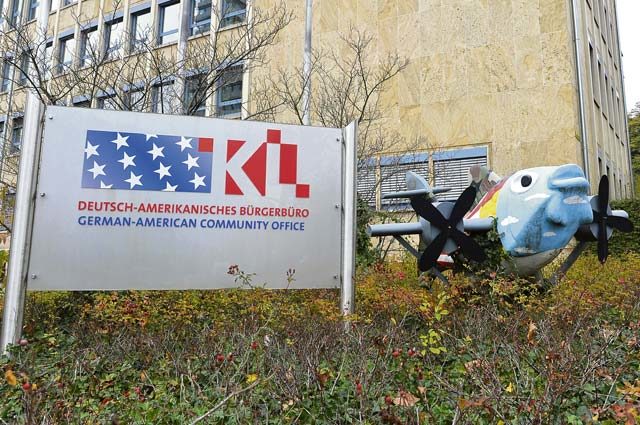
Being introduced to a new culture can be exciting but also sometimes intimidating. This is especially true for both Americans and Germans in the Kaiserslautern Military Community.
The KMC hosts more than 50,000 U.S. military members, civilians and their families, making it the largest community of Americans outside the U.S. The sheer numbers alone can make community relations in the KMC a daunting challenge. However, it is a challenge the German-American Community Office in Kaiserslautern has accepted.
“We have an office, which is open every day in the heart of the KMC,” said Roberto da Costa, GACO chief of operations. “It is open for Germans, Americans and for all nations to come and contact the U.S. military; to ask questions and get help.”
Da Costa described GACO as a joint venture between the 86th Airlift Wing and the city of Kaiserslautern, providing a medium of communication between the German and American communities since 2003.
“We would like to let our Airmen know we are out there in the community for them. We are there to support them and help make their transition smooth,” da Costa said. “At the same time, we want to show the German community that there is a place available for them to come ask questions about interacting with the American community.”
Da Costa placed GACO’s mission into two categories: the local level and the political level. While the personal inquiries coming from various individuals fall under the personal level, the political level involves coordinating or supporting events involving officials from the U.S. military and German government, he said.
In the past, GACO has supported local, national and international officials such as the Japanese ambassador to Germany, the U.S. secretary of the Air Force, congressional delegates from Washington D.C., the consul general of the Rhineland Palatinate, and many other political and military figures from the U.S. and Germany.
Sissi Koesling, GACO representative for the city of Kaiserslautern, said the office is “the only one of its kind,” adding that GACO’s mission ranges from answering basic inquiries to helping people with very personal questions.
“German children adopted and raised by American families mostly right after World War II start looking for their biological parents when they get to a certain age,” Koesling said. “Children of German mothers who never met their American father try to find the other half of their personality. German widows of late retired U.S. military members seek assistance in processing paperwork with the U.S. authorities.”
Koesling continued to list examples of the many kinds of inquiries GACO deals with, such as Boy Scout troops looking for projects in Germany, people inquiring about visa-related issues and even Americans tracing their German heritage.
In a nutshell, both da Costa and Koesling agree that their office’s mission is very diverse.
Andrea Oliver, director of U.S. relations for the Kaiserslautern city government, praised GACO’s work, saying community relations are an important aspect of life in both the American and German communities.
“If you have good community relations and a level of personal interaction, you will be able to understand each other even in difficult times,” she said. “Everybody can be friends when all is good, but we all know it isn’t always good. It’s always better to approach challenging situations together as one people even though we are two communities.”
Oliver said she has worked for the city of Kaiserslautern for 17 years and noted that some local residents would like to have a closer relationship with the American community.
“I’ve just seen a very positive acceptance of the military presence and a desire on the part of community leadership to integrate with the American community,” she said.
Da Costa said he wishes for GACO to continue building bridges between the American and German communities and for the office to stand as a testimony of openness and transparency between the two.
“My vision is to make it more and more the symbol of German and American friendship,” he said. “We have an open gate in the heart of their community. It shows that we are by no means hiding. … It’s the contrary; we are here. We have an open office and you can come to us and ask all questions, and we will respond to them, and we will try to support you.”
Those interested in making an inquiry to GACO can call 0631-363-3010 or email info@gaco-kl.de
The office’s business hours are
9 a.m. to 1 p.m. Monday to Wednesday, 2 p.m. to 6 p.m. Thursday, and 9 a.m. to 1 p.m. Friday.


